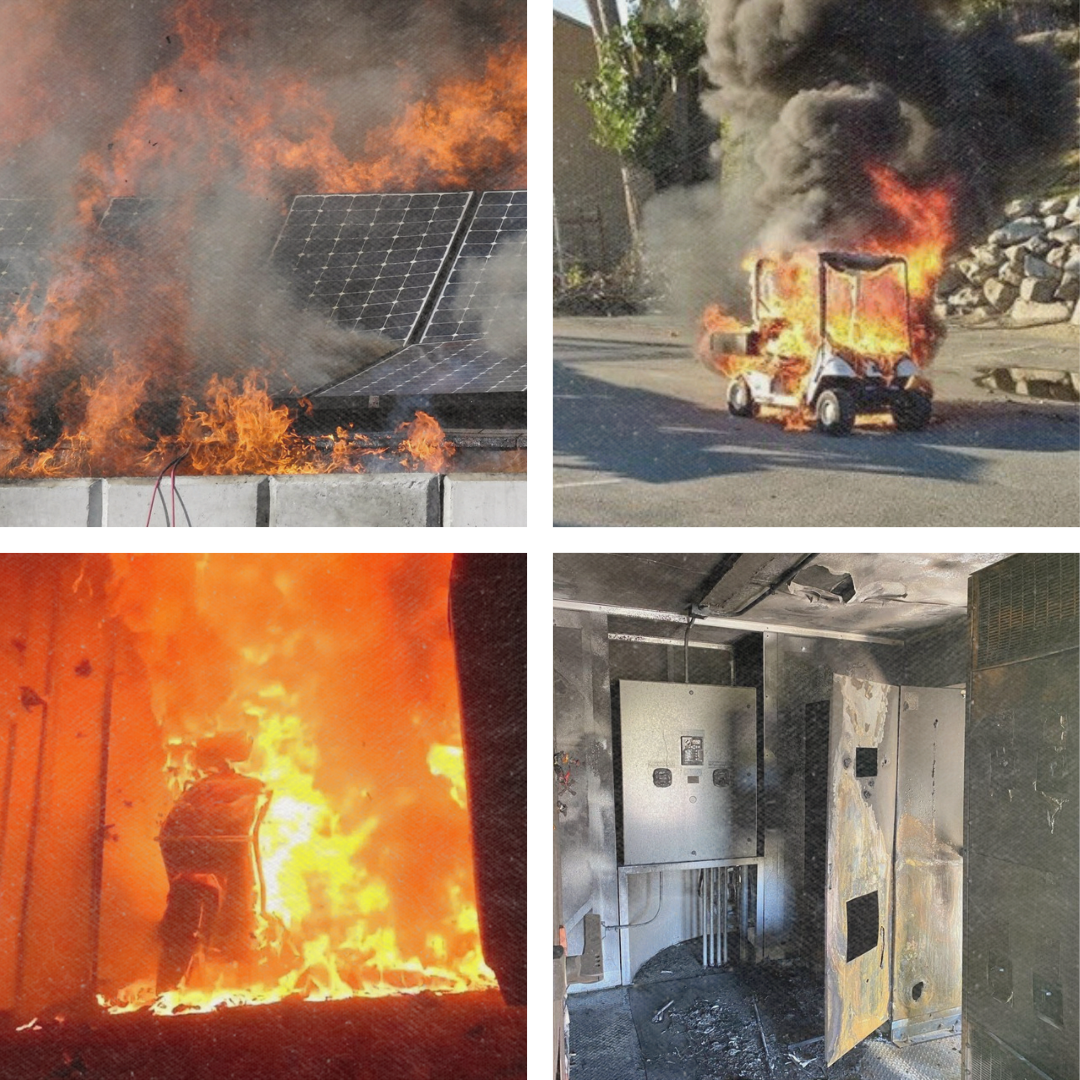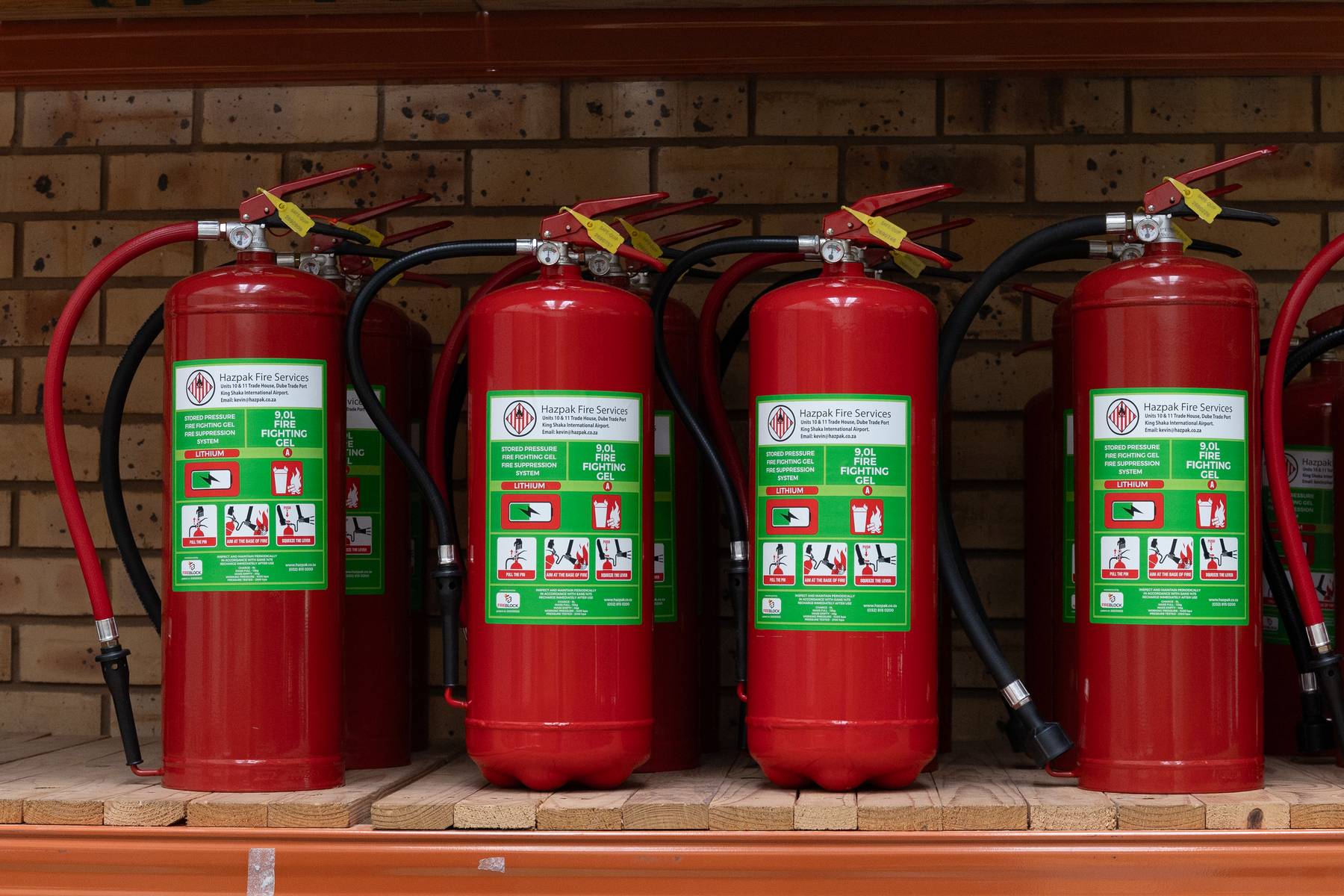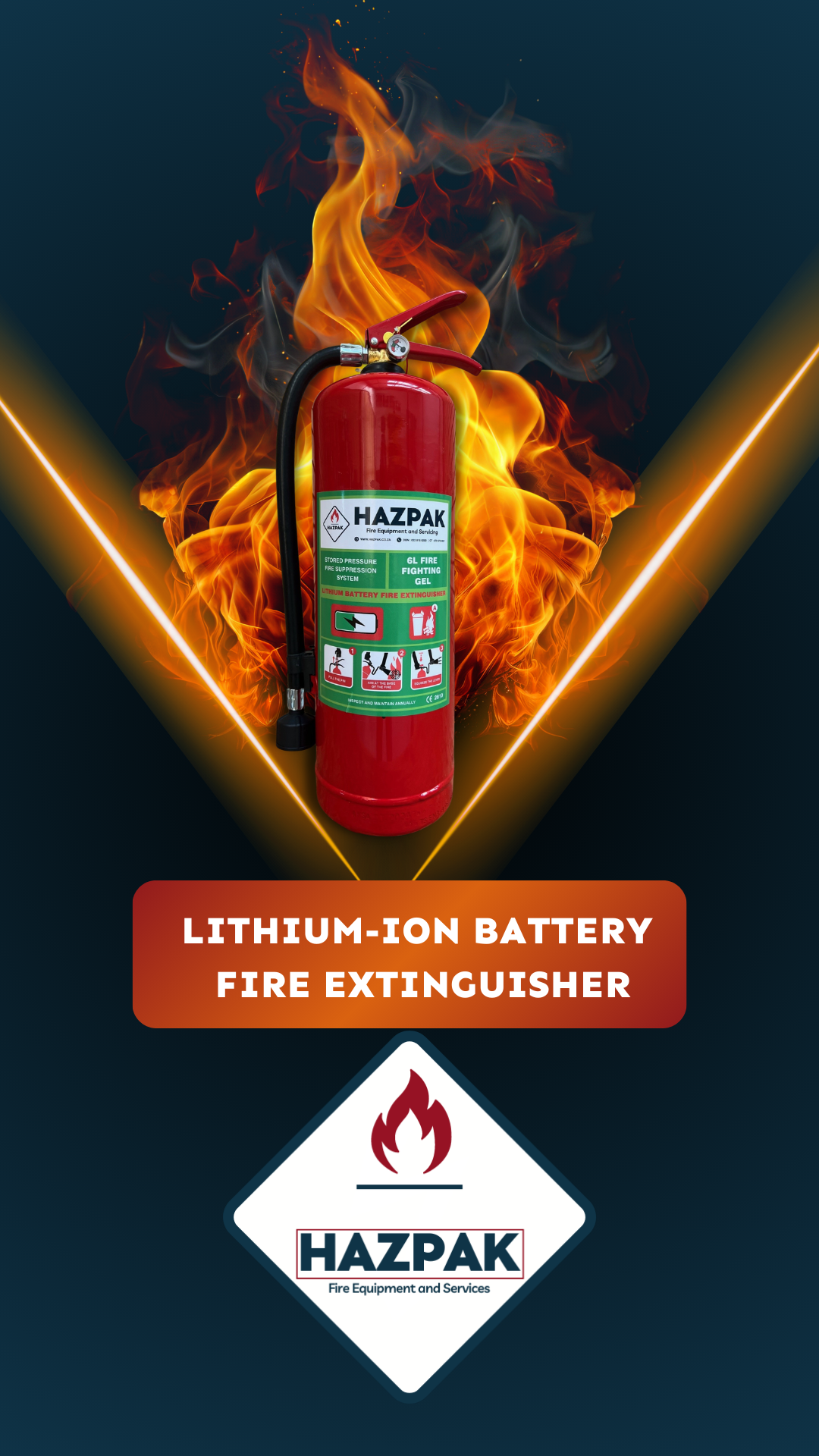Fire Safety
lithium-Ion:
batteries & Extinguishers
Understanding Lithium-Ion Batteries, and their Fire Risks
While efficient and powerful, these batteries pose unique fire hazards that require specialised lithium battery fire extinguishers for effective management.
Given the growing use of lithium-ion technology, part of the awareness of the risks and mitigation thereof is knowing that lithium battery fire extinguishers are the only extinguishers specifically designed to address such eventualities.
Educating the public and businesses about these dangers helps prevent catastrophes and ensures safer handling and storage practices across the country.
What is a lithium-ion battery?
Where do you find Lithium-ion Batteries?

e-Cigarettes

e-Bikes

Golf Carts

Electronic Vehicles

Laptops

Cellphones And Tablets

Smartwatches

Power Tools

Inverters

Solar Installations
What are the risks of Lithium-ion Batteries?
Thermal Runaway:
This is a chain reaction that can occur when a battery overheats. Once it starts, the heat can cause a rapid increase in temperature, potentially reaching over 540°C very quickly. This can lead to fires and even explosions.
Fast Burning:
When a lithium-ion battery catches fire, it burns aggressively. Flames spread rapidly and are difficult to extinguish because they can reignite even after being put out.
Fires can be triggered by several things, including:
Overcharging:
Using the wrong charger or leaving the device plugged in too long can overheat the battery.
Physical Damage:
Dropping or puncturing the battery can cause internal short circuits, leading to a fire.
Manufacturing Defects:
Sometimes, a flaw in the battery’s design or manufacturing can cause it to fail and catch fire.

Understanding Lithium-Ion Battery Fires
Lithium-ion battery fires are triggered by the release and ignition of flammable organic solvents, gases, and plastic components within the battery. These fires involve flammable materials and release toxic compounds like Hydrogen Fluoride, Hydrogen Cyanide, and Sulphur Dioxide, posing significant risks during the fire and post-fire cleanup.
Fires often begin at the cell level due to unstable chemical processes, leading to thermal runaway—a cycle of heat and gas production that can spread to adjacent cells. Effective intervention focuses on dissipating heat and preventing thermal propagation to control these fires.
Using advanced agents that enhance heat dissipation and prevent thermal propagation is key to tackling lithium-ion battery fires safely and effectively.
Our array of hazardous packaging solutions includes UN-approved combination and single packaging options, meticulously crafted to ensure your dangerous goods are transported safely and efficiently.

Proactive Protection with Hazpak Fire
Realising the importance of home safety and community protection against lithium battery fires, Hazpak Fire steps forward with tailored, innovative fire extinguishing solutions with the lithium-ion gel fire extinguisher. By prioritising safety and incorporating cutting-edge technology, we ensure you’re equipped to effectively confront fires and secure your family and surroundings.

Understanding EU Accreditation and Its Importance
When it comes to fire safety, particularly with lithium-ion batteries, using EU-accredited battery fire extinguishers is crucial.
EU accreditation ensures that the battery fire extinguishers meet stringent safety standards recognised across Europe, providing reliable and effective fire suppression.
Although no lithium fire extinguishers (LFEs) in South Africa have SABS approval, EU accreditation guarantees that these products have passed rigorous testing and are safe for use.
This certification is a mark of quality, assuring users that the battery fire extinguishers will perform effectively in critical situations.
EU Accreditation vs. SABS Approval

DID YOU KNOW?
Not all fire extinguishers fight every type of fire.
Only a lithium battery fire extinguisher will extinguish a lithium battery fire.

Frequently Asked Questions:
Lithium-ion Fire Extinguishers
Can standard fire extinguishers be used on lithium-ion battery fires?
No, standard extinguishers are ineffective. Specially designed lithium-ion fire extinguishers are required.
How do lithium-ion fire extinguishers work?
They use agents that cool the battery and suppress the release of flammable gases, stopping thermal runaway and preventing fire spread.
Are there any certifications for lithium-ion fire extinguishers?
SABS certification is still in process for these extinguishers, and currently there is no date for finalisation. Hazpak’s lithium battery fire extinguisher is imported from Europe with EU accreditation to ensure they meet rigorous safety standards.
What should be done after a lithium-ion battery fire is extinguished?
Post-fire cleanup is crucial due to the release of toxic compounds; proper safety procedures must be followed.
Are lithium-ion fire extinguishers reusable?
Most are single-use and should be replaced after discharging.
Where should lithium-ion fire extinguishers be stored?
Store them close to areas where lithium-ion batteries are used or charged, ensuring easy access in emergencies.
Is training required to use a lithium-ion fire extinguisher?
A lithium battery fire extinguisher is operated in exactly the same way as other fire extinguishers.
Explore the critical design challenges and risk mitigation strategies for Electric Vehicle (EV) fire safety in car parks, with insights from Chapman Taylor’s experts.
This article delves into how architects and designers can address the growing risks associated with EV fires, especially in light of incidents like the Luton Airport car park fire.
Discover how building materials, infrastructure, and emergency procedures need to evolve to enhance public safety and protect properties as EVs become more common.
Now servicing both KwaZulu-Natal and Cape Town!






